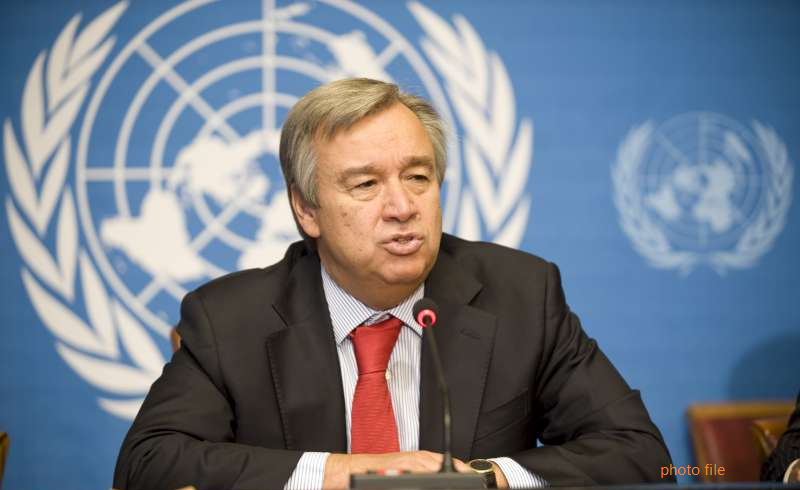Guterres Stresses Need for Bold Nat'l Leadership to Achieve Health Coverage by 2030 - ENA English
Guterres Stresses Need for Bold Nat'l Leadership to Achieve Health Coverage by 2030

Addis Ababa September 24/2019 Achieving Universal Health Coverage by 2030 Hinges on ‘Bold National Leadership’, UN Secretary General António Guterres told world leaders who approved an action‑oriented political declaration on universal health coverage.
World leaders gathering at the United Nations Headquarters have approved today an action oriented political declaration on universal health coverage, committing themselves to achieving that objective by 2030.
By the terms of the declaration, which was forwarded to the General Assembly for formal adoption at a later date, world leaders reaffirmed the right of every human being, without distinction of any kind, to the enjoyment of the highest attainable standard of physical and mental health, committing to accelerate efforts towards the achievement of universal health coverage.
In his remark to the high-level meeting, António Guterres said “half of the world’s people are still waiting to exercise that right, with serious consequences for us all,” with some 100 million people worldwide impoverished by catastrophic health care expenses.
The declaration approved today is the most comprehensive agreement ever reached on global health — a vision for universal health coverage by 2030, the secretary general said, describing it as a “significant achievement” that will drive progress over the next decade on communicable diseases, including HIV/AIDS, tuberculosis and malaria, while addressing non- communicable diseases and anti-microbial resistance through robust and resilient primary health care systems.
According to the UN website, the United Nations stands ready to assist member states in these endeavors, but “making universal health coverage a reality by 2030 depends first and foremost on bold national leadership,” Guterres stressed.
World Health Organization Director‑General, Tedros Adhanom Ghebreyesus, said that lack of access to affordable primary health care is a problem not only in low income countries, but also in high income ones, where cancer patients often choose death due to the financial disaster treatment would bring to their families.
The director-general called upon countries to spend an additional 1 percent of gross domestic product (GDP) on primary health care and make a crucial shift to people centered quality services.
Tedros noted that, “Ultimately, health is a political choice,” adding that the declaration approved is a powerful statement.
Gro Brundtland, eminent high‑level champion of universal health coverage and member of The Elders, said health cannot be left to the free market, as only the wealthy will access services, while the poor are plunged further into poverty.
She pointed out that universal health coverage can only be achieved through public financing, recalling that 30 years ago, development agencies and Western Governments pressured developing countries into cutting health budgets and pushing the burden onto households.
According to Brundtland, raising health financing efficiently and fairly is not enough; resources must be allocated equitably.
She drew attention to successful primary care-led universal health-care reforms, notably Ethiopia’s health work program, and welcomed that after decades of such achievements, the global health community has come together to champion universal health care — and importantly agrees on how to achieve it.